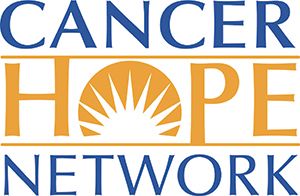- About Us
- Advertise / Support
- Editorial Board
- Contact Us
- CancerNetwork.com
- TargetedOnc.com
- OncLive.com
- OncNursingNews.com
- Terms & Conditions
- Privacy
- Do Not Sell My Information
- Washington My Health My Data
© 2025 MJH Life Sciences™ and CURE - Oncology & Cancer News for Patients & Caregivers. All rights reserved.
COVID-19 Helped People Understand the Loneliness Cancer Survivors Face

Brielle Benyon, Assistant Managing Editor for CURE®, has been with MJH Life Sciences since 2016. She has served as an editor on both CURE and its sister publication, Oncology Nursing News. Brielle is a graduate from The College of New Jersey. Outside of work, she enjoys spending time with family and friends, CrossFit and wishing she had the grace and confidence of her toddler-aged daughter.
Patients with cancer often experience loneliness, and the COVID-19 pandemic helped the general public better understand what that isolation felt like, an expert said.
The COVID-19 pandemic made the general public have a better understanding of what it is like for patients with cancer or other illnesses to feel isolated and lonely, explained Beth Blakey.
In a recent interview with CURE®, Blakey, who is the executive director of Cancer Hope Network, discussed the current “loneliness epidemic,” and how organizations and cancer centers can help curb these feelings for patients and their loved ones, especially as loneliness has been associated with poorer outcomes and negative health behaviors for patients with cancer.
In one study of adolescent and young adult cancer survivors, patients who reported feelings of loneliness were more likely to smoke and experience anxiety and depression. Additionally, childhood cancer survivors who reported loneliness were more likely to heavily consume alcohol, have suicidal ideation and new-onset moderate to life-threatening chronic conditions.
READ MORE: Support Groups Address Loneliness of a Cancer Diagnosis for Patients, Caregivers
Blakey said that these feelings of loneliness were common for patients with cancer who are undergoing treatments and are immunocompromised.
“It's something that people are now understanding and experiencing themselves,” she said in an interview with CURE. “So I think the pandemic really did kind of shine a light on that and help people to be able to empathize in a very different way than really ever before.”
Transcript
So, you know, it's interesting, when the pandemic happened, when we were talking to our cancer survivors who are volunteers, there were several conversations where they said, “People now more broadly understand what it feels like to be somebody experiencing cancer — that isolation, that loneliness that somebody's experiencing cancer, or really any critical illness, for that matter, how they feel.”
It's something that people are now understanding and experiencing themselves. So, I think the pandemic really did kind of shine a light on that and help people to be able to empathize in a very different way than really ever before.
For more news on cancer updates, research and education, don’t forget to subscribe to CURE®’s newsletters here.
Related Content:



